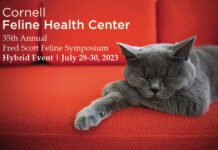Help for Mourning Owners Pet Style News has awarded Soft-Hearted Products their “Editors Choice Award” for best pet memorial product. Every year, Pet Style News magazine searches for the most innovative new pet products. According to Pet Style News, the Soft-Hearted Pillow is “a major departure from the wood, ceramic and stone urns available on the market. This product gives the mourning pet owner a way to continue to hold and hug the lost pet in the form of a velvet-soft pillow with the pets ashes safely contained inside a zippered pouch at the center.” This unique pillow urn is the creation of Patricia Moore of Naples, Florida, who lost her beloved dog Samantha after 15 years of companionship. Moore vowed to create a product for pet owners that would soften their loss while offering something that could be held close. The Soft-Hearted Pillow is a standard sized decorative pillow, made by hand in the U.S. It comes in a choice of soft fabrics with matching braided trim, and pet owners can have it personalized with their cherished pets name and dates. The pillow has a hidden pocket and pouch; the ashes are placed into the pouch and are then tucked securely and discreetly into the center of the pillow. For more information, you can visit www.soft-hearted.com. Probiotics and Herpesvirus A very common infectious disease in cats is feline herpesvirus-1 (FHV-1). Unfortunately, the virus is associated with morbidity because of recurrent ocular and respiratory signs of disease (see related article on page 3). One dietary supplemental probiotic, Enterococcus faecium strain SF68, has immune enhancing properties, and the SF68 supplementation is considered safe for use in cats (“Pilot study to evaluate the effect of oral supplementation of Enterococcus faecium SF68 on cats with latent feline herpesvirus 1” in the Journal of Feline Medicine and Surgery). Twelve cats with chronic FHV-1 infections were given either SF68 or a placebo. The cats were then monitored for clinical signs of disease, monitored for FHV-1 shedding and evaluated for FHV-1 specific humoral and cell-mediated responses and fecal microbiome stability. The researchers found that clinical results varied amongs individual cats, although overall findings suggested that administration of the probiotic lessened morbidity associated with chronic FHV-1 infection in some cats. This was a pilot study and additional research is warranted to evaluate this protocol in a clinical setting. Rabies and Vaccinations Globally, 35,000 to 50,000 human deaths can be attributed to bites from rabid dogs, primarily in Southeast Asia, Africa, Latin American and India. The incidence of rabies in domestic animals in the United States has decreased substantially in the last 50 years, while the incidence in wildlife has increased (see column on page 8 of this issue). This retrospective study contains results from 21 states and indicates that rabies is uncommon in vaccinated dogs and cats, but can still occur. Thirty-five laboratory-confirmed cases of rabies out of 1,104 cases involved dogs and cats with a history of rabies vaccination. This information included two dogs and three cats in which vaccinations were considered current. The clinical signs of rabies most often seen in cats include aggression, paralysis and lethargy. Other signs include excitability, change in voice, loss of appetite, choking, difficulty swallowing, ataxia, tremors and anorexia. The study (“Rabies in vaccinated dogs and cats in the United States” in the Journal of the American Veterinary Medical Association) concluded that veterinarians should include rabies in the differential diagnosis for any dog or cat with clinical signs compatible with rabies regardless of vaccination history.



